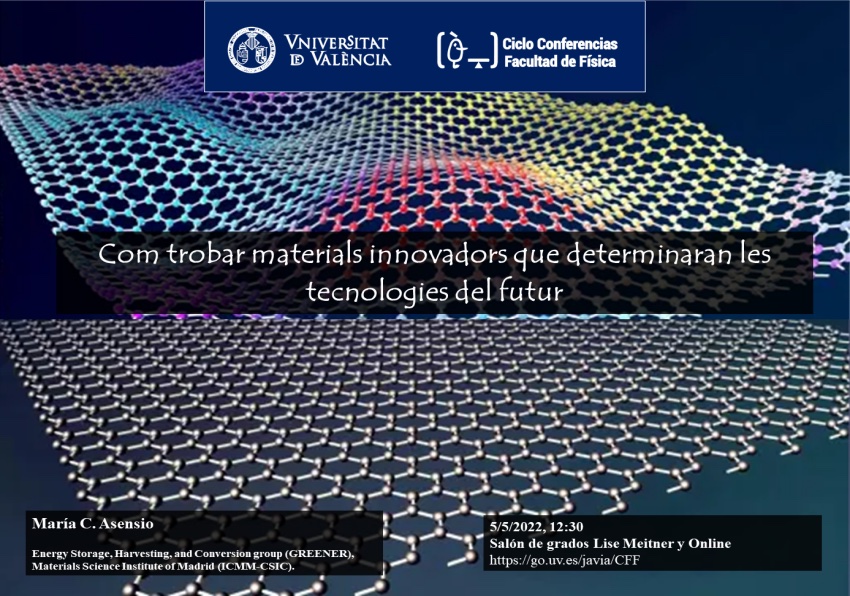
Speaker: Professor María C. Asensio. Materials Science Institute of Madrid (ICMM/CSIC), Cantoblanco, E-28049 Madrid, SPAIN & MATINÉE, the CSIC Associated Unit with the University of Valencia, Madrid, SPAIN.
Summary:
New smart materials are the cornerstone of all clean energy innovation in domains such as advanced batteries, solar cells, low energy semiconductors, thermal storage, CO2 conversion, capture and use. Given that the discovery and development of new materials related to energy and other technologies currently require 10-20 years of study at very high-cost, finding suitable materials is the bottleneck in the global transition to a low-carbon future. Recently, there has been a growing interest in applying artificial intelligence techniques and their subclasses to better predict novel materials with engineered properties. This collection of statistical methods has already achieved considerable success, particularly in the context of the Materials Genome Initiative (MGI)[1].
However, the complexity of these materials requires specially adapted techniques and tools. These techniques and tools must posses superb spatial energy resolution to detect spatial heterogeneities and reveal quantum effects, describing possible future materials at the atomic level even before they have been synthesised for the first time. A key type of instruments in micro- and nano-science are scanning microscopes with different probes. They basically consist of extremely accurate handscopes with a platform and a probe that sweep or scan the sample detecting electronic and structural properties at the atomic level.
This lecture will present a brief description of advanced experimental and theoretical techniques for the study of innovative materials especially in the area of renewable energies, showing their application in a variety of examples. In particular, special emphasis will be given to materials that have been studied at different European synchrotron radiation centres.
[1] Materials Genome Initiative for Global Competitiveness, (2011), https://www.mgi.gov.
Date 5 may 2022 at 12:30 to 14:00. Thursday.
Lisa Meitner Hall. Faculty of Physics. Burjassot Campus.
Conference cycles of the Faculty of Physics.
https://www.uv.es/uvweb/fisica/ca/cicle-conferencies/curs-2021-2022-1286215806814.html
Contact maria.a.tortola@uv.es







